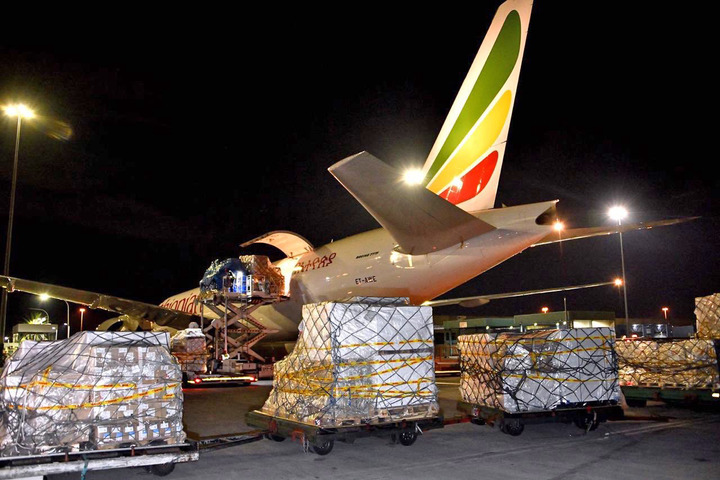CAPE TOWN, July 5 (Xinhua) -- Eight practical outcomes, among many highlights, of the recent 14th BRICS Summit will particularly benefit South Africa and the African continent at large, said Chinese Ambassador to South Africa Chen Xiaodong.
The BRICS Vaccine Research and Development (R&D) Center has been launched to serve as a comprehensive platform for joint research and development, and production of vaccines for developing countries, bridging the current vaccine divide, Chen said in an article published on June 29 by Independent Online (IOL), a South African leading news and information website.
The BRICS members will also support countries, especially developing ones, to strengthen their capacity building in the local production of vaccines and other health tools, he said.
In terms of food security, the BRICS, whose total grain output accounts for about one-third of the world's total, reached for the first time a food security cooperation strategy and established a forum on agricultural and rural development.
Such measures represent practical efforts by BRICS members to stabilize global food production and contribute to global food security governance, said Chen.
This will lay a solid foundation for solving world food security issues and ease possible food crisis in some African countries, he said.
According to the ambassador, the BRICS countries also reached a digital economy partnership framework and proposed a cooperation initiative on the digital transformation of the manufacturing industry, as many African countries including South Africa attach great importance to digital economy.
The summit also tapped new potential for technological transformation and upgrading and built a science and technology "toolbox" to address the current global risks and challenges, said Chen.
Members agreed to establish the BRICS Technology Transfer Center Network, hold the Big Data Forum for Sustainable Development, establish the BRICS Aerospace Cooperation Mechanism, and expand new frontiers in science and technology cooperation, said Chen.
The BRICS countries have made various efforts for global economic recovery and growth, by upholding the multilateral trading system and improving the formulation of international trade rule -- particularly by supporting multilateral trading system and World Trade Organization (WTO) reform, and putting forward an initiative on strengthening cooperation on supply chains, said the ambassador.
The BRICS countries also launched a new initiative to fight corruption, under which the members will strengthen capacity building cooperation, enhance exchanges within multilateral frameworks over the issue, said Chen.
The seventh outcome is creating a new track for the training of high-level professionals by setting up a vocational education alliance, holding vocational skills contests, BRICS Solutions for SDGs (Sustainable Development Goals) Awards, women innovation contests, and promoting the convergence of talent chain, industry chain and innovation chain in them, said the article.
Last but not least, the summit put forward new proposals on improving global governance, as the BRICS countries reiterated commitment to multilateralism and made it clear that global governance should be "more inclusive, representative and participatory," according to him.
This will facilitate deeper and more meaningful participation of developing countries and least developed countries, especially African countries, in the global decision-making process, he said.




 A single purchase
A single purchase









